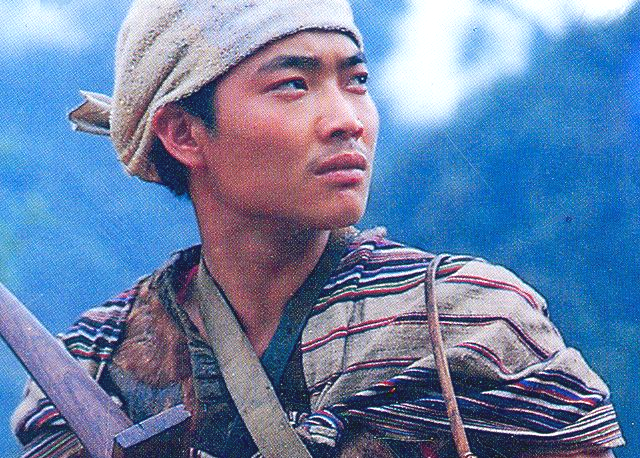© This article is an extract from Paul Hattaway's epic 656-page China’s Book of Martyrs, which profiles more than 1,000 Christian martyrs in China since AD 845, accompanied by over 500 photos. You can order this or many other China books and e-books here.
1992 - Paul Xiao Jinsheng
June 2, 1992
Paul Xiao Jinsheng
Beijing
Paul Xiao Jinsheng.
Xiao Jinsheng was born into a pious Catholic family in Zhengding, Hebei Province, in 1914. His godly parents loved the Lord Jesus Christ, and offered all of their children—two sons and three daughters—to the service of God. Jinsheng’s older brother became a priest, while all three of his sisters were nuns belonging to the Sisters of Charity. Jinsheng took the Christian name Paul at his baptism.
In 1936, at the age of just 22, Paul Xiao Jinsheng travelled to Rome where he obtained a doctorate of theology at the Gregorian University. Ten years later he left Europe and made his way back to Zhengding. By then, the Communist threat had grown in North China and they were to assume control over the whole country just a few years later. The Catholic Church in China at the time (and today) was strongest in Hebei Province, so much pressure and persecution was already being exerted on the believers there.
The Bishop of Zhengding appointed Xiao Jinsheng to take care of the seminarians studying at Furen University in Beijing, and to lecture at the academy. For the first 18 months after the founding of the People’s Republic of China, few problems seemed to come the way of Christians, to the surprise of many. Later, it seemed this period of peace was to allow the government to identify their biggest threats and implement a strategy to dispose of them. Xiao was seen as a particularly large threat because of the decade he had spent studying overseas. Paul Xiao Jinsheng was arrested on July 2, 1951. For the next 14 years he
“…underwent a good deal of torture and suffering. For long periods of time his hands were handcuffed behind his back, and he was unable to use his hand to eat with, for he could only use his mouth to eat bitefuls of steamed bread of corn or sorghum, and even when he went to the lavatory he had to be helped by the other prisoners. Both his ankles were weighed down by feet shackles of seven kilograms [15 pounds], and this lasted for 14 whole years!”[I]
In 1966, with the Cultural Revolution raging outside the prison walls, Xiao was sent to a coal mine prison labour camp in Shanxi Province. Another 12 years passed while he shovelled coal 16-hours per day, seven days per week. In 1978 the Public Security Bureau decided they needed a translator, and appointed Xiao to the job because of his knowledge of several European languages. This job lasted just one year, however, and in 1979 he was sent back to join the team of labourers in the coal mine.
In 1980 and 1981, a full 30 years since his arrest, the government decided all prisoners who had spent more than 20 years in prison could apply for a special amnesty. They were not allowed to go home or have the liberties of a normal citizen, but could continue to work for the Labour Reform Department. Although this new arrangement meant the prisoners were under virtual house arrest and would continue to be watched, it promised more freedom, so Paul Xiao Jinsheng accepted the offer. Just a year later he was diagnosed with diabetes and he soon became blind in both eyes. Xiao applied for medical parole, and although still technically a prisoner, he was allowed to live in a “dark and shabby little room”[II] occupied by his three sisters in Beijing. They were all nurses, and lovingly took care of their long-suffering brother with tenderness.
In early 1992 Xiao Jinsheng’s health deteriorated. He was taken to see a doctor in Tianjin, who diagnosed him with advanced lung cancer. There was a large collection of water in his lungs. After the doctor sucked the water out nine times, Xiao returned to Beijing, and passed away on June 2, 1992, at the age of 78. The decades of agonizing labour in the coal mine, frequent beatings, and filthy conditions had finally caught up with this faithful servant of God. Including those years when he was under house arrest, Paul Xiao Jinsheng had spent an astonishing 40 years and 11 months in prison. One account of his funeral service said,
“The sound of weeping and lamentation shook the surroundings, a truly mournful occasion! Over 300 people joined the funeral procession…. Because Father Xiao enjoyed high prestige and commanded universal respect, and also because he chose to be a witness to Christ, he suffered much from Communist persecution. Everyone regarded him as a saint…. Father Xiao, as a witness to Christ, had suffered for over 40 years, and now armed with a virtue and achievement that had survived every test, he has gone to face God to receive his reward.”[III]
I September 8th Editorial Board, Blessings of the Divine Bounty, 110.
II September 8th Editorial Board, Blessings of the Divine Bounty, 110.
III September 8th Editorial Board, Blessings of the Divine Bounty, 109-110.





